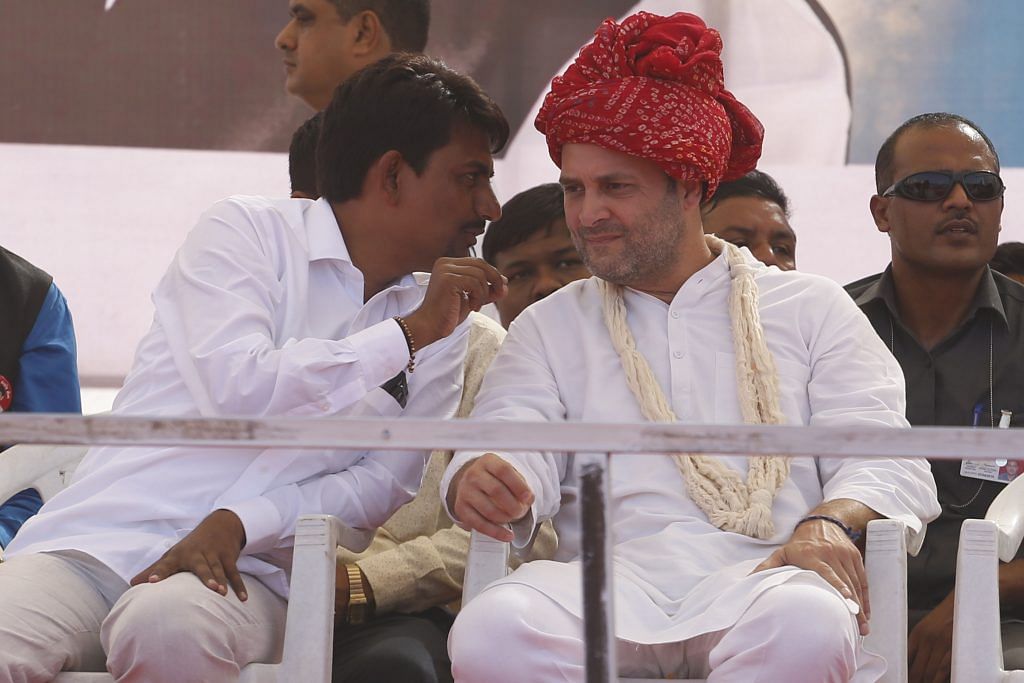ThePrint asks:
Do Gujarat poll results show voters are seeking younger, newer leaders?
Given the overall passivity of the Congress party in its candidate selection process, the campaign in Gujarat demonstrated a different momentum. Rahul Gandhi’s trust in the new leadership of the Patidars, OBCs and Dalits has been successful in creating a generational shift in the electoral competition.
It is no ordinary impact that nearly one-sixth of the legislative seats held by the BJP have been ceded to the Congress without much transformation in the party itself, whether in its agenda, style, or substance.
There is new blood in Gujarat politics, which has the courage to articulate the politics of protest in social terms. Calling it politics of casteism is living in denial. This phenomenon is a coming together of caste, deprivation, and inevitably, mobilisation. The politicisation of caste identity and a demand for a space of alternative politics aims to alter the social chemistry in Gujarat.
This trend will further change the scenario, provided the Congress remains true to its Gujarat manifesto, and Rahul Gandhi remains committed to new-generation politics.
It also shows that Narendra Modi is a phenomenon in personal terms. Any political initiative to challenge him in a regular way around ‘anti Modi-ism’ will not be good enough.
There is a need to include the problem of electoral reform, particularly reverting to the ballot paper system, addressing money power in political campaigns, and issues of rural distress and jobless growth.
These issues, raised by the Congress, gave the youth a sense of inclusion in the political discourse. They had already articulated them earlier, but were confused by the political grammar in Gujarat. Rahul Gandhi’s understanding of their language made them evolve from an otherwise routine electoral system.
As we had the Modi factor in 2014, this time there seems to be the birth of the Rahul factor. The regular Congressman can still not meet the demands of alternative politics, something Rahul has shown he is open to embracing.
Anand Kumar is a retired sociology professor from JNU. He is currently a fellow at Indian Institute of Advanced Studies and is active in the Swaraj Abhiyan and Swaraj India.
